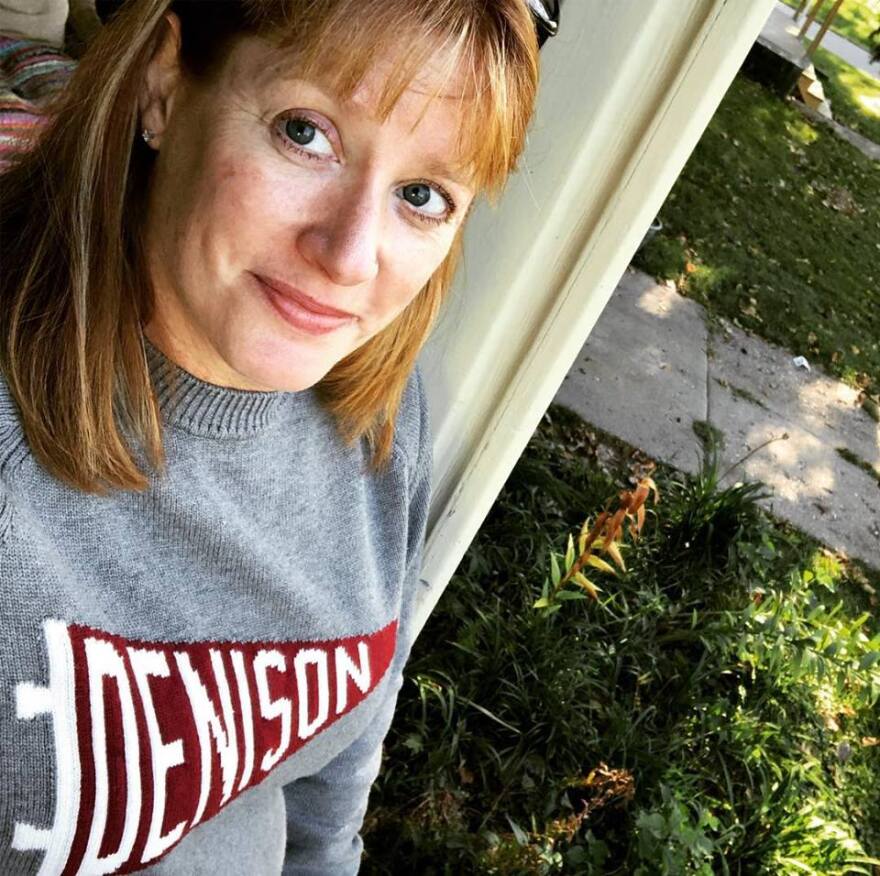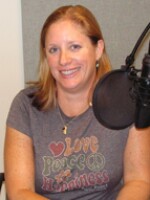For the last two Saturdays, my daughter Maren and I have joined a small group of returned Peace Corps volunteers and friends from Macomb to help Genesis Gardens distribute food from the Loaves and Fishes pantry. Armed with hand sanitizer and attempting to keep 6 feet between ourselves at all times, we loaded copious bags of dried, frozen and fresh food into our vehicles. Maren and I spent the next hour finding nooks and crannies of Macomb that I never knew existed. We knocked on doors and left food on front porches and stoops.
With the “stay at home” order that Governor Pritzker put in place in mid-March and which has now been extended through the end of April, we all have to change the way in which we move in the world. Restaurants have moved to take out only, and schooling has gone online.
I think one of the most important adaptations is to determine how to continue to help those in our communities who need it most. I have always known that Loaves and Fishes helped a lot of people, but when I actually counted the people, the impact was somehow more profound. I counted 578 people who received food from Loaves and Fishes over the last two Saturdays.
Add to that the 340 people who during the month of March received meals from the YMCA of McDonough County.
The WIRC pantry, which remains open for curbside pickup from 8-4 on Tuesdays, Thursdays, and Fridays distributed food to 51 individuals during the first week of the “stay at home” order.
And finally, let’s not forget the 644 students whose breakfasts and lunches are being delivered to their homes by a team of volunteers every day, despite the fact that the Macomb Public Schools are closed.
That is 1613 people I counted. Which brings me to the main point of this commentary: We all count and we need to be counted.

Wednesday, April 1, is U.S. Census day. The U.S. Census is a nationwide tally of everyone who lives in this country. Young, old, rich, poor, U.S. citizen or not, this enumeration provides a snapshot of who we are and where we live. In the best of times our part of the world is overlooked. Those who live in the densely populated east and west coasts often only fly over this part of the world, thus giving us the nickname “flyover country.”
My favorite label however is “Forgottonia,” a phrase coined by Jack Horn and Neil Gamm in the late 1960s or early 1970s. The phrase was created to reflect the frustration over the lack of support for transportation and infrastructure projects in the region. If no one knows we are here, then no one will invest in us. This is one reason why it is absolutely essential that each and every one of us participate in the census.
In counting everyone who lives in this region lawmakers, business owners and others will have the best data to make critical decisions about how to invest for our future. Plans for where to build new schools or hospitals, roads and bridges, in addition to funding for families, children and older adults are all influenced by the results of the 2020 Census.
Hundreds of billions of dollars of federal funding is also allocated to over 100 programs like Medicaid, Head Start, block grants for community mental health services, and the Supplemental Nutrition Assistance Program, also known as SNAP.
For you amateur genealogists and historians out there, census data is often the doorway to finding out more about where we come from.
On the political front, we have one shot in the next decade to determine how many seats Illinois will have in the House of Representatives and what our congressional and state legislative districts look like.
All of this depends on each and every one of us making sure we are counted for the 2020 Census. Luckily, there are several ways in which we can do this that are easy and take little time at all.
Last month my family received a postcard in the mail from the U.S. Census. It contained a web address - my2020census.gov - and my family’s personal census I.D. number. In a little over 5 minutes, I logged on, entered my code, and answered the questions online. Easy peasy. Did you throw that postcard out? No worries, you will also receive a letter from the U.S. Census Bureau containing the same information.
Still procrastinating? Look for a paper questionnaire containing the same questions as the online survey. Complete it and mail it back in the pre-paid postage envelope. If the paper survey finds its way to the trash, a Census worker will come to your home to interview you. Being mindful of social distancing, interviewers will remain outside and maintain at least 6 feet of space between themselves and you as they collect the necessary data.
We may live in a part of the country that most people will never visit or even know about. But that doesn’t mean we don’t count. We all count. Do your part and complete the Census.
Heather McIlvaine-Newsad is a professor of Anthropology at Western Illinois University.
The opinions expressed are not necessarily those of the university or Tri States Public Radio. Diverse viewpoints are welcomed and encouraged.







